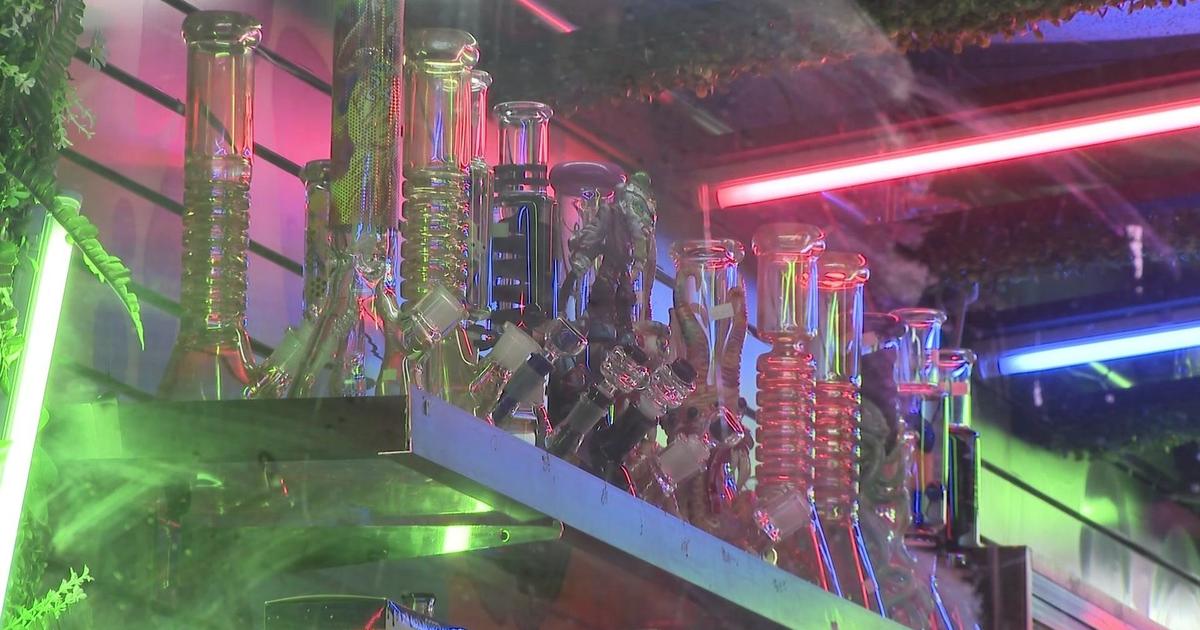Toys "R" Us Planning To Liquidate Its US Operations
NEW YORK (CBSNewYork/AP) -- One of America's most iconic toy stores is closing. Toys "R" Us released a statement overnight confirming it has filed a motion to sell or close all 735 of its stores in the U.S.
About 33,000 workers will lose their jobs in the coming months.
The Wayne, New Jersey-based company filed for Chapter 11 bankruptcy protection last fall, saddled with $5 billion in debt that hurt its attempts to compete as shoppers moved to Amazon and huge chains like Walmart and Target.
"At Target, you can pick up your groceries, your household cleaners, your toys and your clothing," said consumer savings expert Andrea Woroch. "So now that eliminates the need for having to go to other stores. Then Amazon rolls out cheaper prices on toys and a host of other online retailers, making it easier to shop for toys. So I think those were all of the things that really added to the demise of the brand."
CBS2's Meg Baker spoke with shoppers browsing stores in Jersey City for sales Thursday.
"The kid is upset because Toys "R" Us is closing. So daddy had to come and make sure I got him something before they close the store," Xavier Javier, of Bayonne, said. "He's into his Transformers and video games."
"My daughter, she's seven, she likes Barbies and babies," said Patricia, of Union City.
Edwin Tamayo grabbed diapers for his 1-year-old daughter, Mia, at 15 percent off.
"It's all over social media and everything, so I came to check it out and see the discounts," he said.
Clara Shepard walked out with a cart full.
"I bought a train for him, and that was what I was looking for at a better price than Amazon," she said.
But some weren't impressed by the sale prices.
"It's not really as cheap as I would've thought," said Glen Miguel.
"I'm disappointed they're closing down, because my niece is having a baby shower. She got all these gift cards and stuff," Pat O'Donnell said.
The company is already shuttering its business in the United Kingdom. That would leave it with stores in Canada, central Europe and Japan, where it could find buyers for those assets. Toys "R" Us had about 60,000 full-time and part-time employees worldwide last year.
In January, it announced plans to close about 180 stores over the next couple of months, leaving it with a little more than 700 stores.
The company's troubles have affected toy makers Mattel and Hasbro, which are big suppliers to the chain. But the likely liquidation will have a bigger impact on smaller toy makers, who rely more on the chain for sales. However, many have been trying to diversify in recent months as they worried about the chain's survival.
Toys "R" Us was also hurt by the shift to mobile devices taking up more play time. But steep sales declines over the holidays and thereafter were the deciding factor, said Jim Silver, who is editor-in-chief of toy review site TTPM.com.
The company didn't do enough to emphasize that it was reorganizing but not going out of business, Silver said. That misperception led customers to its stores because they didn't think they would be able to return gifts.
Lawmakers want the company to allow consumers to turn their unused gift cards back into cash before stores close or shelves are empty.
Now, the $11 billion in sales still happening at Toys "R" Us each year will disperse to other retailers like Amazon and discounters, analysts say.
Other chains, seeing that Toys "R" Us was vulnerable, got more aggressive. J.C. Penney opened toy sections last fall in all 875 stores. Target and Walmart have been expanding their toy selections. Even Party City is building up its toy offerings.
"Amazon may pick up the dollars, but won't deliver the experience needed for a toy retailer to survive and thrive in today's market," said Marc Rosenberg, a toy marketing executive.
Toys "R" Us had dominated the toy store business in the 1980s and early 1990s, when it was one of the first of the "category killers"— a store totally devoted to one thing.
Its scale gave it leverage with toy sellers and it disrupted general merchandise stores and mom-and-pop shops. Children sang along with commercials about "the biggest toy store there is."
But the company lost ground to discounters like Target and Walmart, and then to Amazon, as even nostalgic parents sought deals elsewhere. GlobalData Retail estimates that nearly 14 percent of toy sales were made online in 2016, more than double the level five years ago.
Toys "R" Us still has hundreds of stores, and analysts estimate it still sells about 20 percent of the toys bought in the United States.
It wasn't able to compete with a growing Amazon: The toy seller said in bankruptcy filings that Amazon's low prices were hard to match. And it said its Babies "R" Us chain lost customers to the online retailer's convenient subscription service, which let parents receive diapers and baby formula at their doorstep automatically.
Toys "R" Us blamed its "old technology" for not offering its own subscriptions. But its biggest albatross was its massive debt load since private-equity firms Bain Capital, KKR & Co. and Vornado Realty Trust took it private in a $6.6 billion leveraged buyout in 2005.
The plan had been to take the company public again, but weak sales have prevented that from happening. With such debt levels, Toys "R" Us did not have the financial flexibility to invest in its business. The company closed its flagship store in Times Square, a huge tourist destination that featured its own Ferris wheel, about two years ago.
In filing for bankruptcy protection last fall, Toys "R" Us pledged to make its stores more interactive. It added demonstrators for the holiday season to show people how toys work, and began opening Play Labs at 42 stores, areas where children can play with different items.
(© Copyright 2018 CBS Broadcasting Inc. All Rights Reserved. The Associated Press contributed to this report.)



